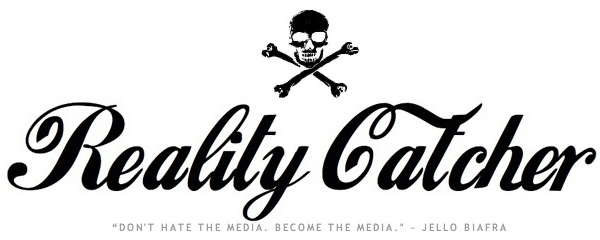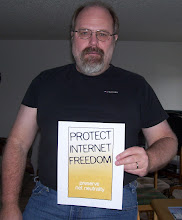I'll never forget my excitement when I first started downloading songs using Napster in 1999. Sure, I'd downloaded music from the Net -- especially from the hacker "Mass Mails" on AOL which often originated in the hacker-run Macfilez and Zelifcam (macfilez spelled backwards) chatrooms -- as early as 1996. But those were in the unwieldy .wav format, too large for practicality, as they were huge space-hogs on your hard drive, and besides, there was really no practical way to play them except on your computer.
But the invention of the compressed MP3 music file, along with teenager Shawn Fanning's revolutionary creation of Napster software, changed all that. For the first time, music fans worldwide could swap and share songs by all their favorite artists in a peer-to-peer (P2P) paradigm, and the music business would, of course, never be the same. Big Music's shortsighted attempts to fight and snuff out the new technology backfired; they blew their chance to get in on the ground floor by attempting to criminalize the very people who were their most avid consumers and fans.
Many of us know the rest of the story: Despite the taking out of Napster by Big Music, P2P file sharing and downloading inherited the earth via applications such as Kazaa and LimeWire (which didn't share Napster's Achilles heel -- central servers which could be shut down), and soon video became available as well. And, of course, the iPod made the MP3 file the format of choice for many music lovers, thus sealing the deal, and along the way also gave Apple a way to make beaucoup bucks at 99 cents per tune.
But even in my most enthusiastic moments back in 1999 and 2000, as I voluminously added to my burgeoning music collection, I didn't dream that the peer-to-peer paradigm of file sharing would completely transform the way humans communicated, including, crucially, the mass dissemination of user-generated content.
What this has come to mean -- this democratization of mass media typified by sites such as YouTube and MySpace -- is that, for the first time in human history, the movers and shakers of the power structure are no longer the sole gatekeepers of mass-distributed information. This communications uprising is such a paradigm shift, such a truly revolutionary development, that the full import of it still hasn't sunk in for many of us.
Never doubt, though, that those in power who have, until now, been unchallenged in their control of the flow of information have noticed. They are smart enough to know when their relevance -- nay, their very existence -- is threatened, and you can believe me when I tell you that although they were way late to the party, they fully get that now.
If you want proof, just look at what happens every time a regime (for instance, the autocratic governments of Singapore or, more importantly, China) feels really threatened by mass unrest. They, you guessed it, move to either shut down their citizens' access to the Internet, or even more tellingly, to particular channels of information available thereon. YouTube, due to its ability to get video in front of a world audience very quickly and effectively, is often among the first sites to be blocked by those who tremble before the liberating power of information.
It's ironic, really: Just as the corporate consolidation of power and ownership had reached the point where independent voices had been all but eliminated, then along comes the biggest stage of all for those who were otherwise blocked from sharing their stories by the indifference, the cluelessness, or worst of all, the cowardice of mass media outlets in the face of corporate money and power.
It's practically impossible for those in power to control the flow of information when millions of activists have computers and broadband Internet connections and the savvy to use these tools to disseminate subversive views of reality. Life was so much simpler for the ruling class when they only had to worry about a few big media chains!
Now that this genie is out of the bottle, freedom of information is flowering everywhere. Yes, as some media elitists are quick to point out, the very democratic nature of this revolution means that a lot of hogwash and nonsense is out there, along with the good stuff. But that's always been the case. Realistically speaking, at least half of what "officially approved" media tells you consists either of outright lies or of truth distorted so badly to serve a particular agenda that it is unrecognizable and useless.
It's true that with great power comes great responsibility. And now that entire universes of information are available to each of us, we have the huge responsibility of choosing the "best" information available. Choose your sources wisely, folks. There are those who would sell you a world view based on fear, or greed, or guilt, or all of the above. And once the toxic tendrils of xenophobia, racism, or life-denying, body-phobic religious intolerance wrap themselves around your mind, they tend to choke out all that is free and wild and wonderful about the human psyche.
Thank Eris, there are thousands of voices out there on the OTHER side of the struggle: Those who would teach you to think for yourselves, to free your thoughts of the mind-forged manacles of nationalism and racism and bigotry through which our would-be masters want to control us.
"People Power," one episode of the current Science Channel series, Download: The True Story of the Internet, does an excellent job of tracing this information revolution back to its beginning with the advent of Napster and forward to social networking sites like MySpace and Facebook (now being used by political activists to disseminate information) and video sites like YouTube (ditto) which feature user-generated content. Host John Heilemann, a contributing editor at New York magazine, totally identifies with the outlaw hacker culture, and it shows.

A big shout-out to all those on YouTube and MySpace and every other portal who are speaking their truths and fighting the good and noble and worthwhile fight. The way we are transforming MySpace from just a social networking site for hormonal teenagers into a source of subversive and revolutionary information is one of the most exciting mutations happening on the Net today. (It's especially delightful because MySpace is owned by the same right-wing reactionary corporation that owns Fox News.) This fight, our fight, is for the dignity of humanity, for freedom of thought, freedom from hate, freedom from the monolithic, soul-numbing corporate slavery wrapped up in a shiny consumer-culture package that is all our rulers have to offer when it comes to questions like "What is life's purpose and meaning?"
The cruel and twisted lies of corporatism, greed, narrow-mindedness, militarism and xenophobia carry their own terrible power. Witness the millions that are enslaved by them, who in mesmerized and mindless conformity stare into the hollow idol's eyes. But this democratization of mass media inherent in Web 2.0 and Media 2.0 means that now, their voices -- their versions of reality -- aren't the only ones being heard.
May a billion ecstatic flowers bloom. Knowledge is power. Long live the Internet revolution! Power to the People!






























No comments:
Post a Comment